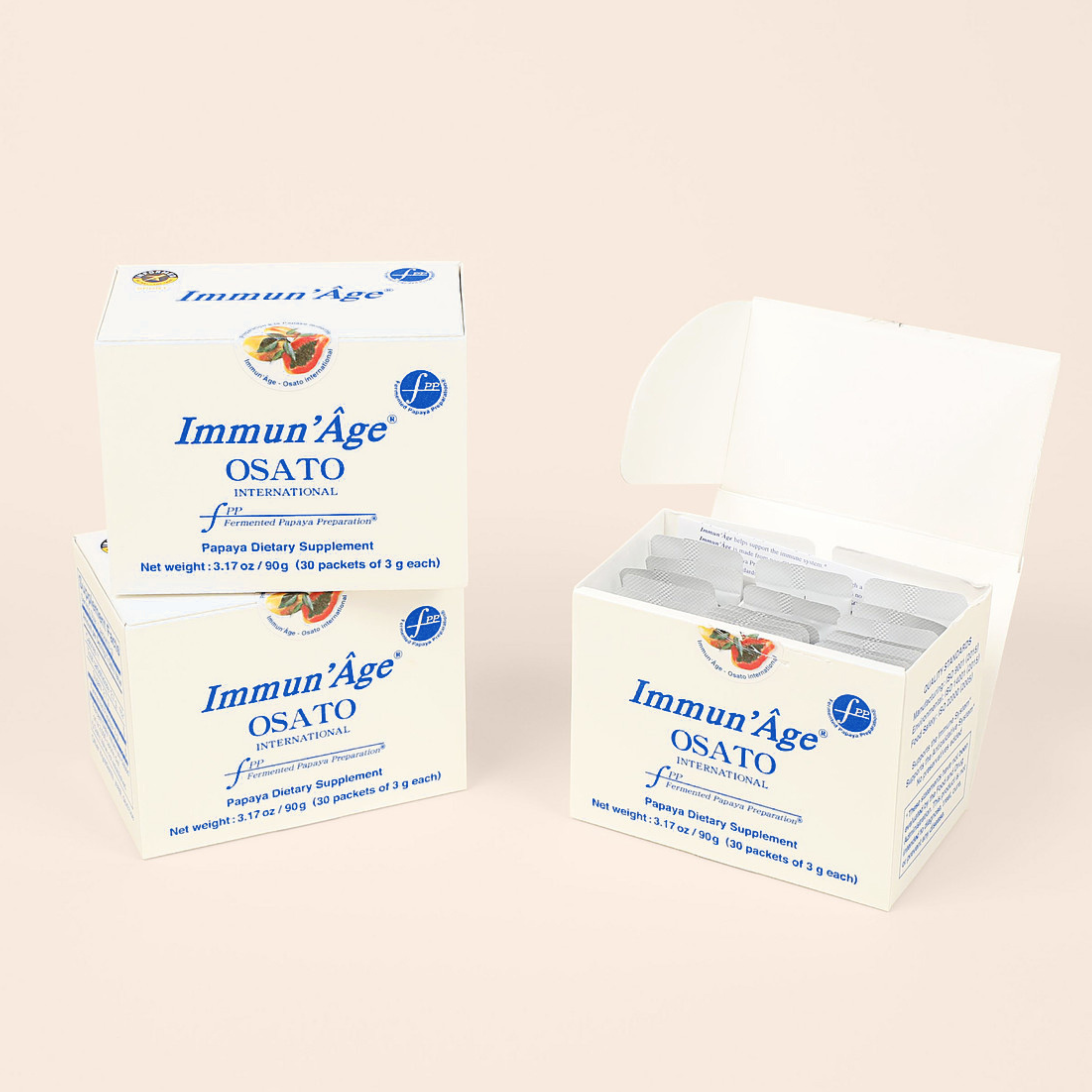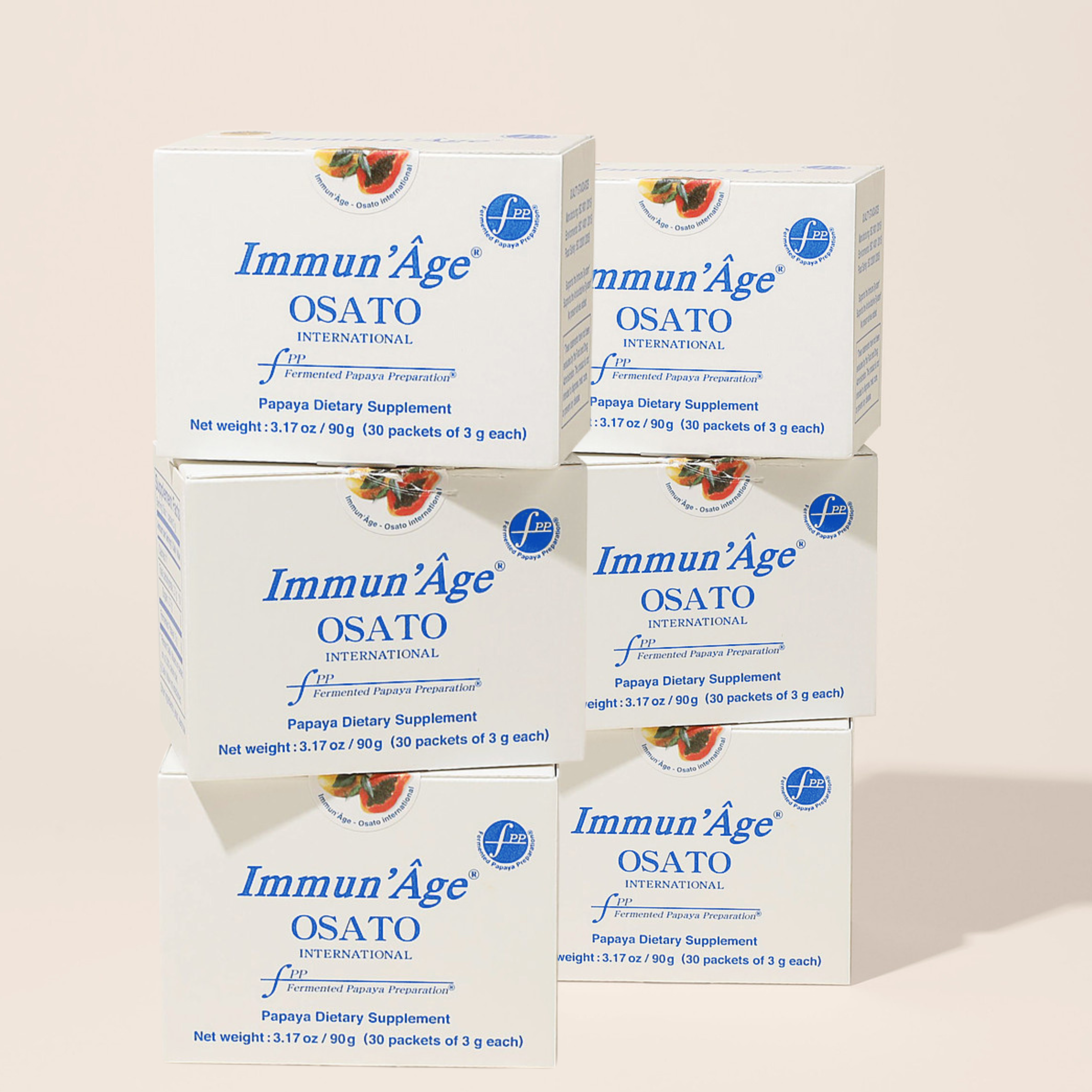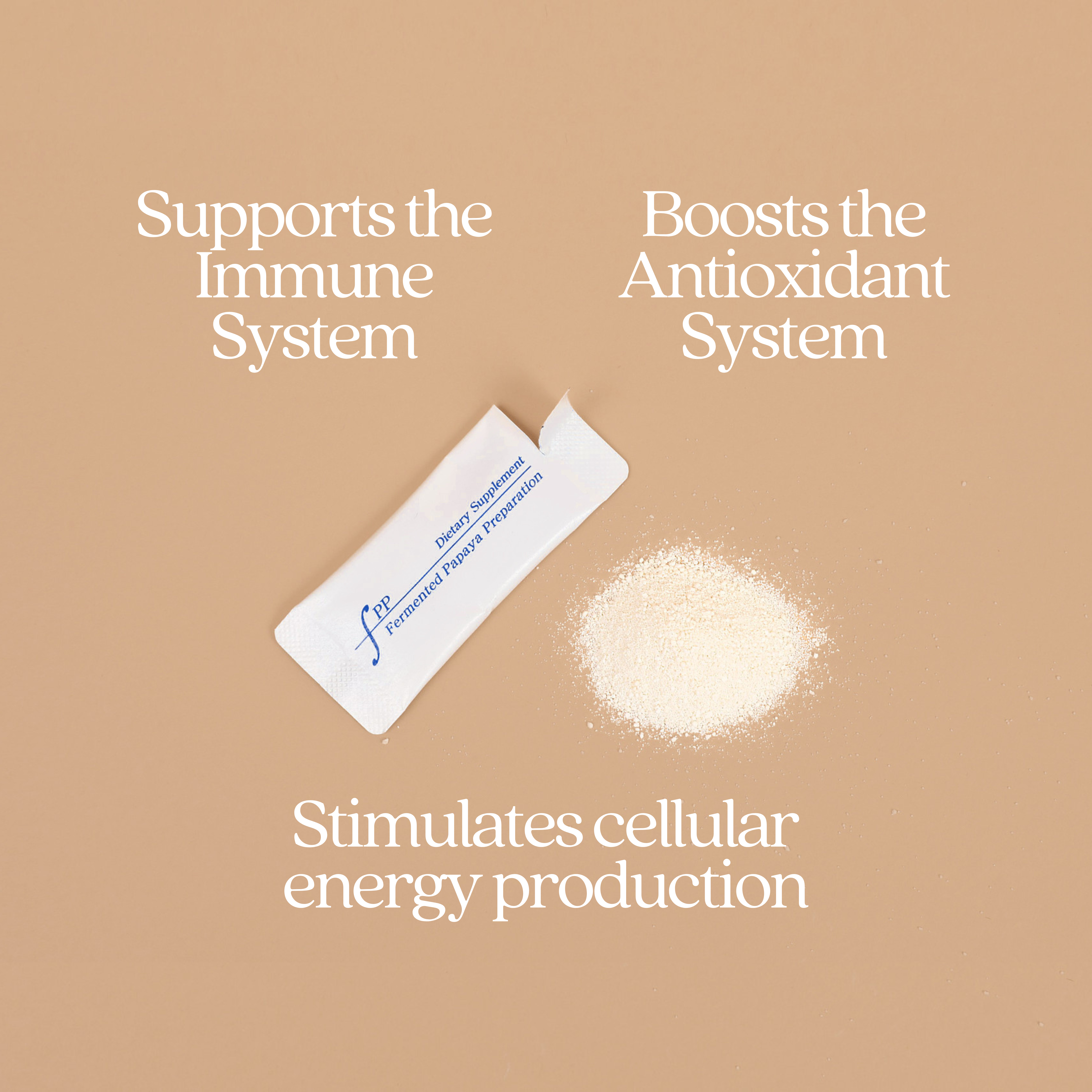
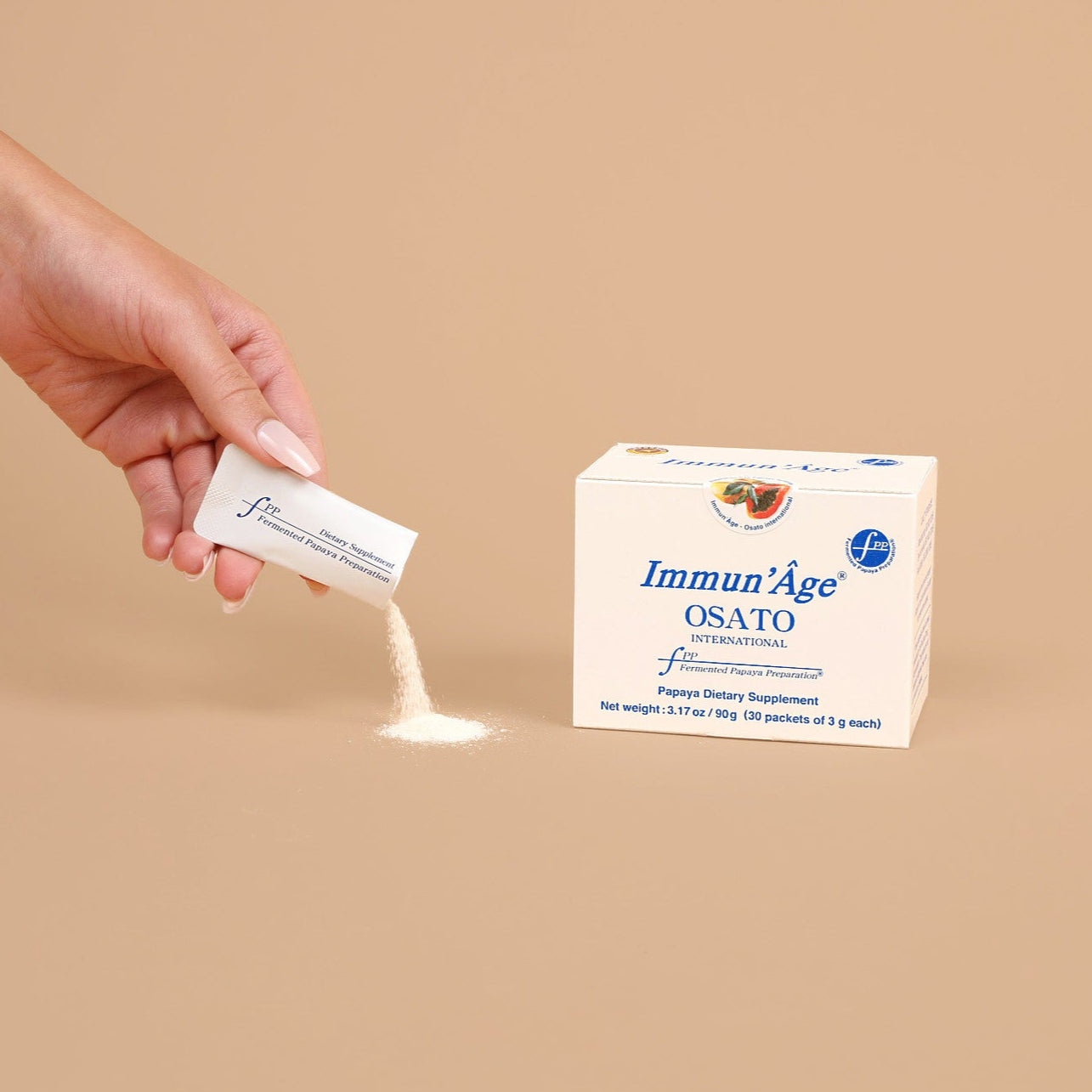

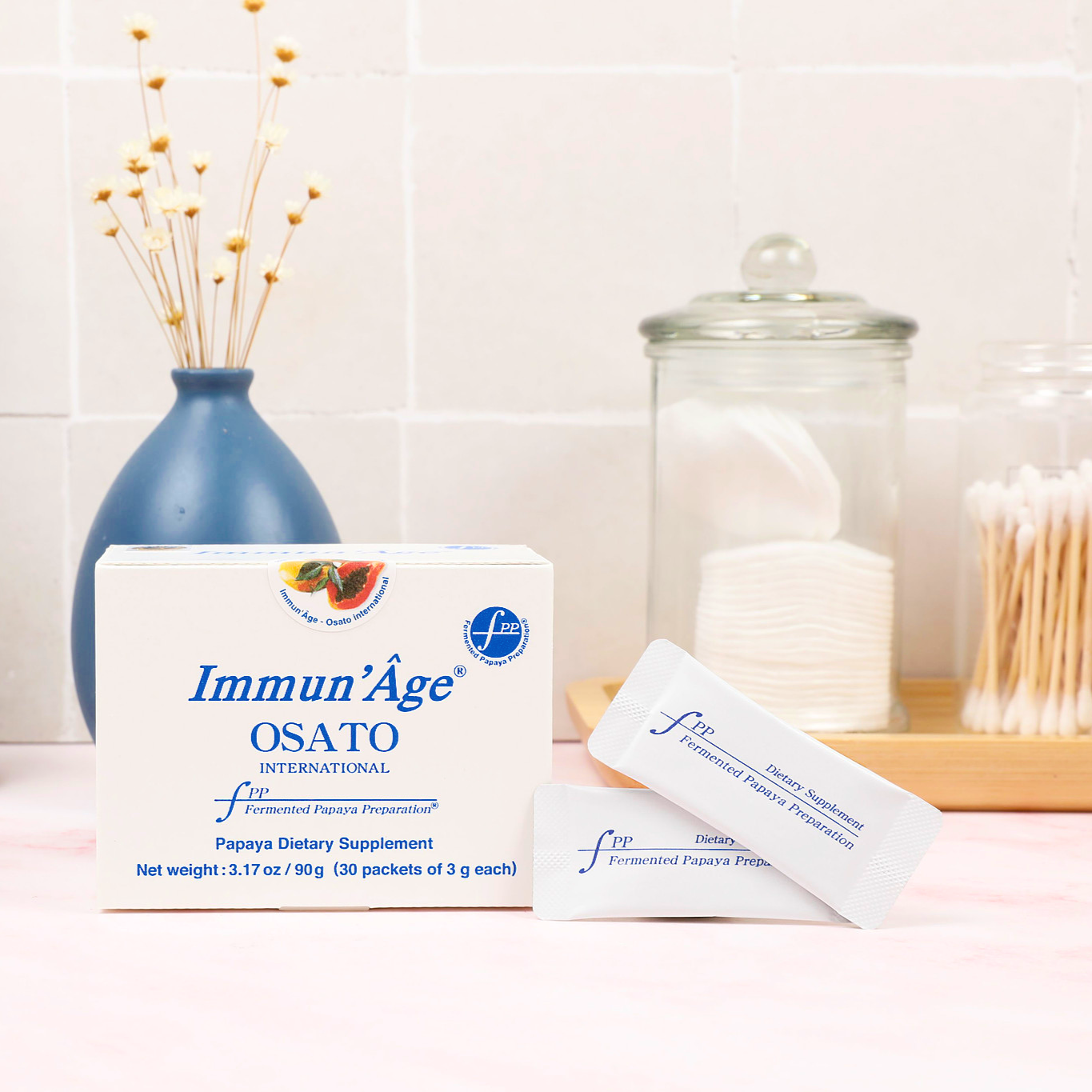

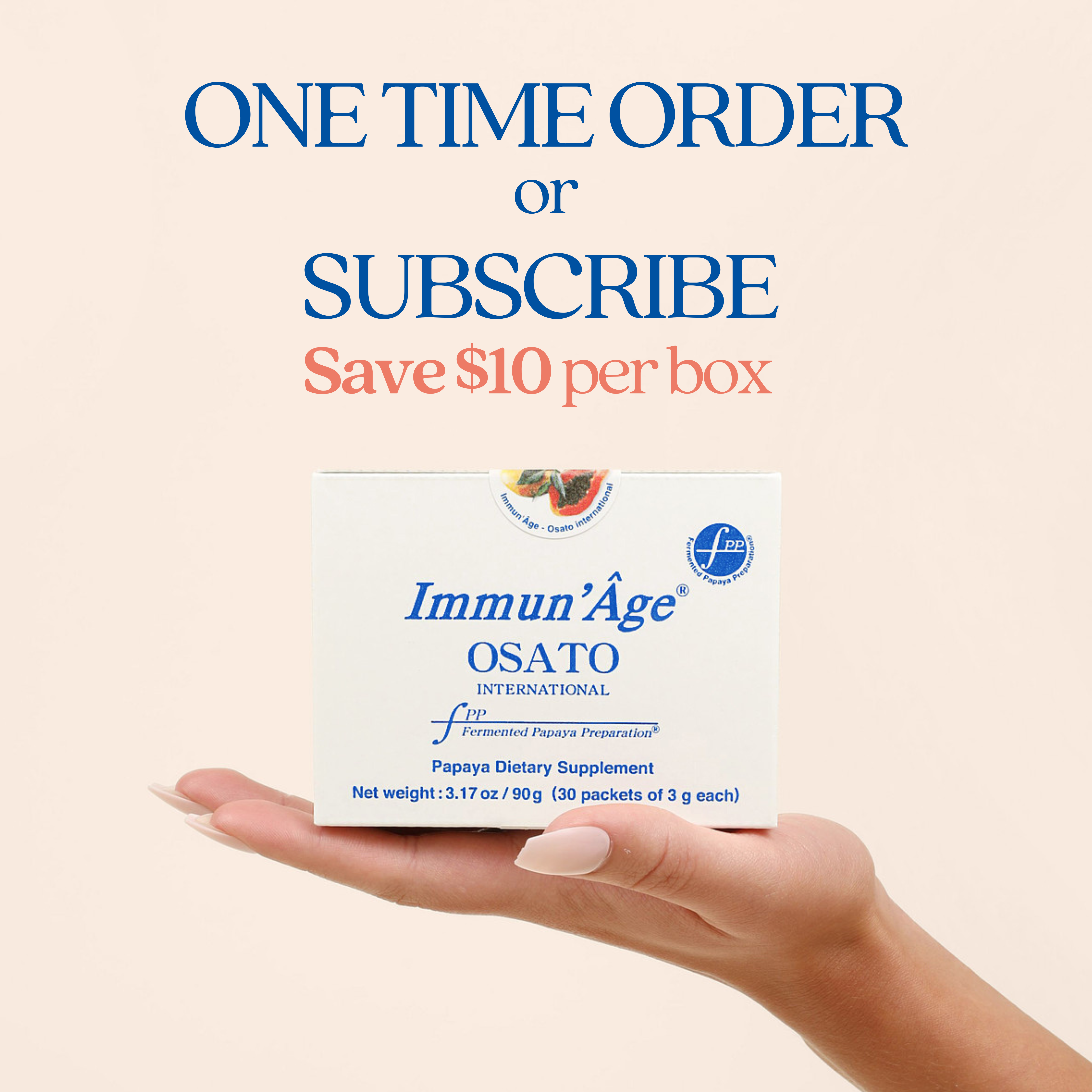
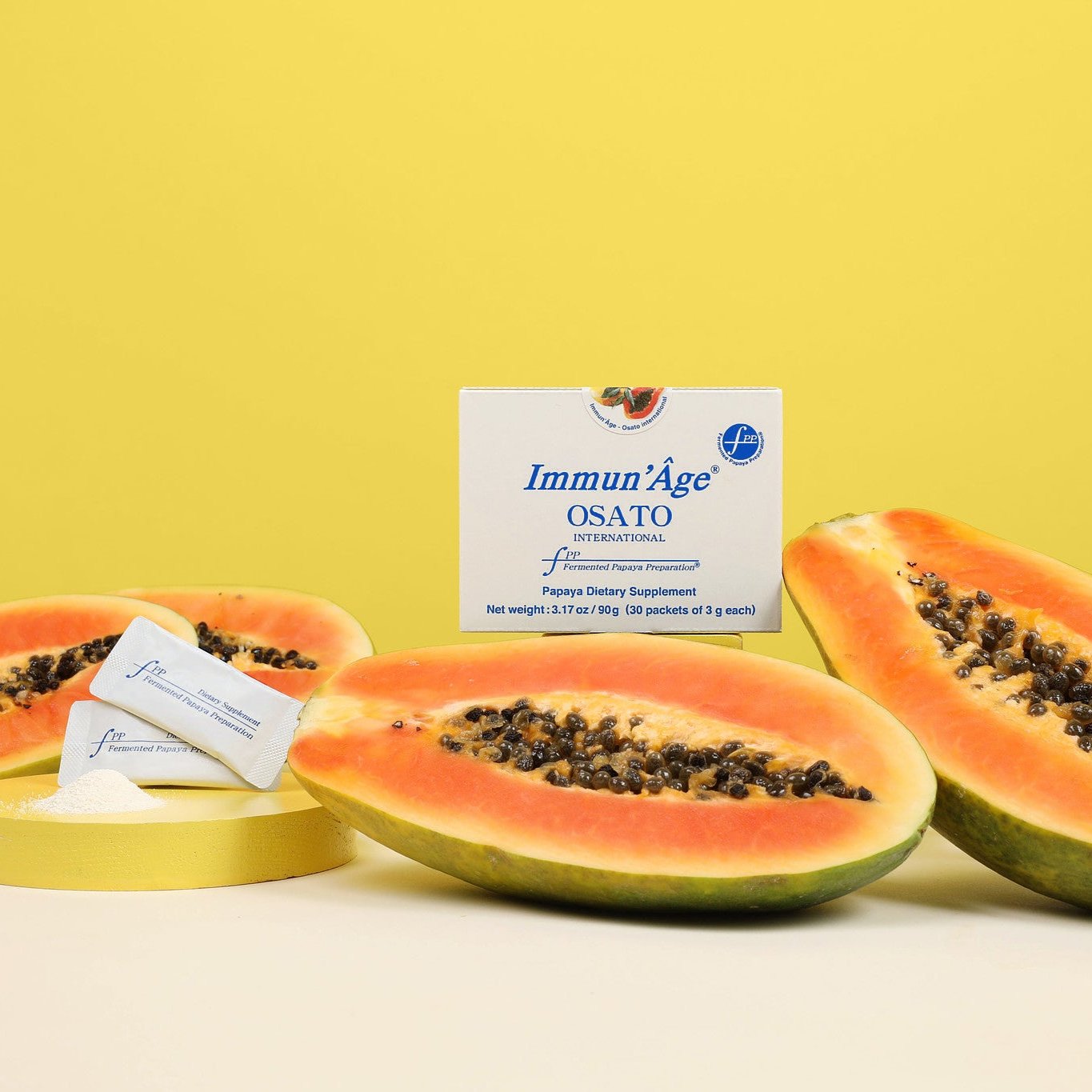
Immun'Âge Classic | The Natural Power of Fermented Papaya

Immun'Âge Classic | The Natural Power of Fermented Papaya
Sale price$69.00








Immun'Âge Classic | The Natural Power of Fermented Papaya
Our bundles
Get your Immun'Âge stock for 3 or 6 months at a discounted price

